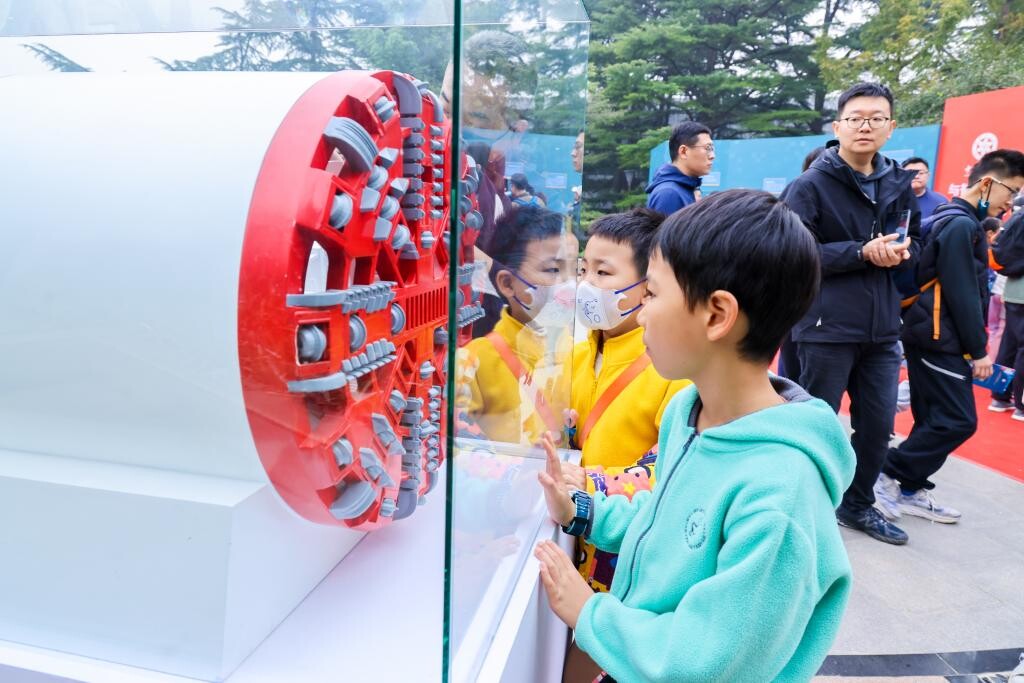 (Photo: Computer Network Information Center, Chinese Academy of Sciences)
(Photo: Computer Network Information Center, Chinese Academy of Sciences)
The annual science festival kicked off on Saturday, aiming to spark public curiosity — especially among young people — and encourage exploration of the unknown through a series of interactive activities.
The event, themed "Hi, Science! — Bridge Curiosity with Discovery, Connect Science with Ingenuity", was hosted by the Chinese Academy of Sciences. It coincided with the 76th anniversary of the founding of the academy and the 70th anniversary of the establishment of its Academic Divisions.
Main venue activities in Beijing were held at the academy's Institute of Botany from Saturday to Sunday, featuring more than 180 exhibits, programs and hands-on activities across six major sections.
Visitors had the opportunity to hear insights from academicians and experts, watch science-themed dramas, experiment and magic shows, and learn about major scientific achievements such as the Jiangmen Underground Neutrino Observatory and superconducting quantum computers.
They also explored China's four major series of scientific research ships and deep-sea equipment systems, and took part in interactive experiments involving brain-computer interfaces, space science and underwater communication. National key laboratories opened their doors for public tours, offering a glimpse into daily scientific research.
A highlight on the first day was the evening event "Creative Blind Box Show", which showcased major achievements of the academy.
Beyond on-site activities, gymnastics world champion Mo Huilan, along with scientific researchers and science popularization bloggers, led a livestreamed cloud tour of the festival. The online program allowed audiences to experience the highlights of the main venue and feel the appeal of science and technology.
Institutions across the country also launched a range of science popularization activities based on their areas of expertise. The Ganjiang Innovation Academy explained the applications of rare earth elements; the National Time Service Center organized lectures and tours to help the public explore the concept of time; the Shanghai Advanced Research Institute opened the National Facility for Protein Science in Shanghai for public tours; and the Lanzhou Institute of Chemical Physics hosted lectures and hands-on activities in rural areas.
Special sessions of the science festival will also be held at the Wuhan Botanical Garden and the Kunming Institute of Zoology.
















